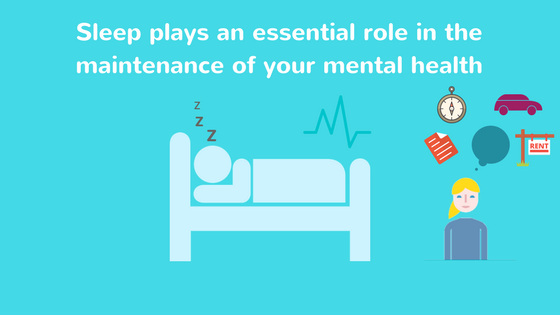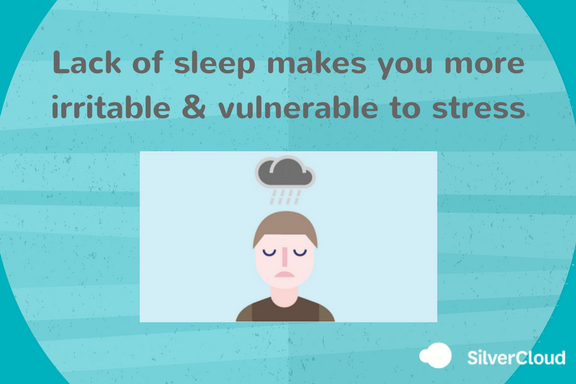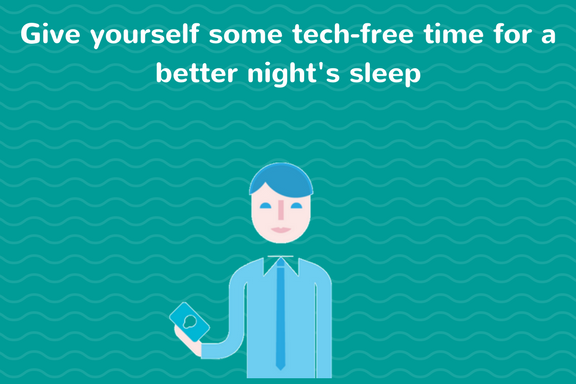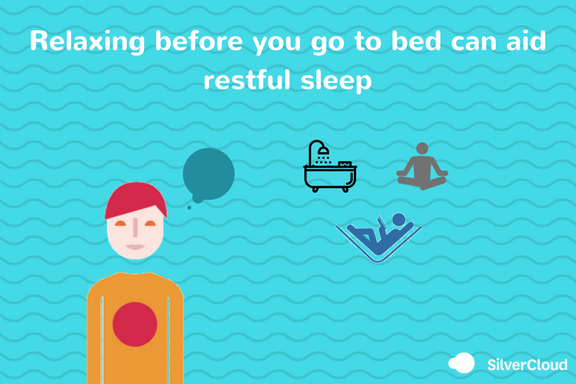 April 13th, 2017
April 13th, 2017
Importance of sleep
Many of us experience sleep difficulties at some point in our lives. Sleep difficulties usually include difficulties falling asleep and staying asleep. If you are having difficulty sleeping, you may notice that you also wake during the night or early in the morning. Sleep plays an essential role in the maintenance of mental health. It helps to regulate mood and process emotional information and experiences into memory.
Barriers to sleep
Some of the common causes of sleep disruption are:
- Stress or worry
- Changes in sleeping patterns (e.g. jet lag, shift work)
- Environmental factors such as a noisy, light or uncomfortable bedroom
- Difficult life events such as bereavement, divorce or redundancy
- Having children
- Physical ill-health or pain
- Going into hospital, residential home or hotel
- Unwanted side-effects of medication
- Street drugs such as amphetamines, ecstasy or cocaine
- Legal drugs such as alcohol, caffeine or tobacco
- Withdrawing from medicines or drugs
- Emotional difficulties such as anxiety or depression

Impact of sleep problems on your mental health
As many of us have experienced first-hand sleep directly affects mood. Insufficient sleep is linked with increased emotional reactivity and irritability. After a sleepless night, you may be more irritable, short-tempered, and vulnerable to stress. You may also feel less able to rationalise worries or irrational thoughts. Once you sleep well, your mood will usually return to normal. However, sleep disruption can last longer for some people and can start to affect areas of life including work, physical health and relationships.
When we are experiencing sleep difficulties, we often may not be aware of how much sleep we actually had or think we need more sleep than we really do. We may find ourselves worrying about our sleep difficulties and this in turn can make the difficulties worse.

Tips for managing your sleep better
The amount of sleep we need to function properly varies from person to person. Some people may need 8 hours a night, while others may only need 4 hours. The amount of sleep we need also changes with our age and lifestyle changes such as changes in our activity levels.
- Establish a routine
Try to set up a regular routine where you go to bed and get up at roughly the same time every day.
- Make sure where you sleep is comfortable
To ensure your sleeping space is comfortable you may want to experiment with the temperature, light and noise levels to work out what works best for you. If not at the right level for you these factors can often cause disturbance to your sleep. In general, dark, quiet and cool environments generally make it easier to sleep.

- Give yourself some tech-free time
Use of bright screens on laptops and phones at bed-time has been shown to negatively affect sleep. Try to give yourself some tech-free time an hour or so before bed and put your device on airplane/sleep mode to avoid disturbances to your sleep.
- Relax before you go to bed
You may find doing some relaxing activity before you go to bed will help clam you and prepare you for sleep such as having a bath, listening to music, breathing exercises or meditation.

- Keep a sleep diary
If you are finding it difficult to find out what is affecting your sleep you could try a sleep diary. It involves recording information about your sleep habits to help you understand your sleep problem and what's affecting it.
- Consider food, drink & exercise
Certain foods such as caffeine, alcohol and sugary foods may provide a short-term relief from tiredness but they can also disturb your sleep patterns so try to keep them to a minimum particularly within a few hours before bedtime. Doing regular physical activity can also help you sleep, as it makes you more physically tired, particularly if you exercise outdoors and get fresh air.
- Consider your medication
Many drugs, particularly ones for mental health conditions, can affect your sleep. If this is the case, talk to your doctor to discuss alternatives.
- Ask about treatment options
If your sleep problem persists you might want to talk to your doctor or a mental health professional about what you're experiencing and the treatment options available. Cognitive Behavioural Therapy (CBT) can help you recognise and change unhelpful thought patterns and habits around sleep. Our Space from Depression and Anxiety online CBT programmes contain a module on manging your sleep.
Medication such as sleeping pills can be helpful in dealing with short bouts of severe insomnia, as they can help you break a cycle of not sleeping and help you return to a more regular sleep pattern.
If you would like to find out more about our Space from Depression and Anxiety online CBT programmes drop us an email.







